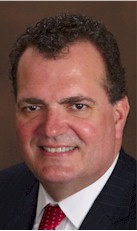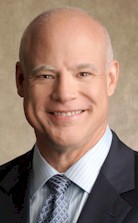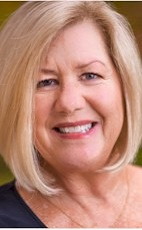
In the not-too-distant future, when guests arrive at a hotel, they will check themselves in using a kiosk in the lobby, by-passing a stop at the front desk. When they call room service to order food, it will be delivered to their door by a robot. When they visit a restaurant, their orders will be placed and the bill will be paid from a hotel mobile tablet, practically eliminating any contact with friendly service people. Though these inevitable developments will likely result in some staff reduction, there is a silver lining - all the remaining hotel staff can be laser-focused on providing guests with the best possible service available. And for most guests, that means being the beneficiary of a personalized experience from the hotel. According to a recent Yahoo survey, 78 percent of hotel guests expressed a desire for some kind of personalization. They are seeking services that not only make them feel welcomed, but valued, and cause them to feel good about themselves. Hotels must strive to establish an emotional bond with their guests, the kind of bond that creates guest loyalty and brings them back time and again. But providing personalized service is more than knowing your guests by name. It's leaving a bottle of wine in the room of a couple celebrating their anniversary, or knowing which guest enjoys having a fresh cup of coffee brought to their room as part of a wake-up call. It's the small, thoughtful, personal gestures that matter most and produce the greatest effect. The April issue of the Hotel Business Review will document what some leading hotels are doing to cultivate and manage guest satisfaction in their operations.




 In the not-too-distant future, when guests arrive at a hotel, they will check themselves in using a kiosk in the lobby, by-passing a stop at the front desk. When they call room service to order food, it will be delivered to their door by a robot. When they visit a restaurant, their orders will be placed and the bill will be paid from a hotel mobile tablet, practically eliminating any contact with friendly service people. Though these inevitable developments will likely result in some staff reduction, there is a silver lining - all the remaining hotel staff can be laser-focused on providing guests with the best possible service available. And for most guests, that means being the beneficiary of a personalized experience from the hotel. According to a recent Yahoo survey, 78 percent of hotel guests expressed a desire for some kind of personalization. They are seeking services that not only make them feel welcomed, but valued, and cause them to feel good about themselves. Hotels must strive to establish an emotional bond with their guests, the kind of bond that creates guest loyalty and brings them back time and again. But providing personalized service is more than knowing your guests by name. It's leaving a bottle of wine in the room of a couple celebrating their anniversary, or knowing which guest enjoys having a fresh cup of coffee brought to their room as part of a wake-up call. It's the small, thoughtful, personal gestures that matter most and produce the greatest effect. The April issue of the Hotel Business Review will document what some leading hotels are doing to cultivate and manage guest satisfaction in their operations.
In the not-too-distant future, when guests arrive at a hotel, they will check themselves in using a kiosk in the lobby, by-passing a stop at the front desk. When they call room service to order food, it will be delivered to their door by a robot. When they visit a restaurant, their orders will be placed and the bill will be paid from a hotel mobile tablet, practically eliminating any contact with friendly service people. Though these inevitable developments will likely result in some staff reduction, there is a silver lining - all the remaining hotel staff can be laser-focused on providing guests with the best possible service available. And for most guests, that means being the beneficiary of a personalized experience from the hotel. According to a recent Yahoo survey, 78 percent of hotel guests expressed a desire for some kind of personalization. They are seeking services that not only make them feel welcomed, but valued, and cause them to feel good about themselves. Hotels must strive to establish an emotional bond with their guests, the kind of bond that creates guest loyalty and brings them back time and again. But providing personalized service is more than knowing your guests by name. It's leaving a bottle of wine in the room of a couple celebrating their anniversary, or knowing which guest enjoys having a fresh cup of coffee brought to their room as part of a wake-up call. It's the small, thoughtful, personal gestures that matter most and produce the greatest effect. The April issue of the Hotel Business Review will document what some leading hotels are doing to cultivate and manage guest satisfaction in their operations.


















.jpg?w=70)



.jpg?w=70)








